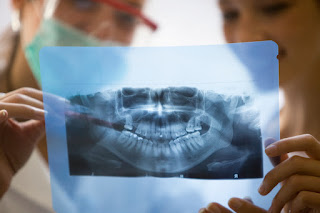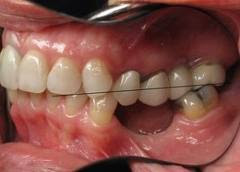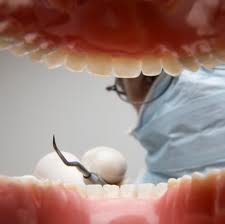Got questions about tooth whitening? Want to find out if you’re doing the best you can do to look after your teeth and gums? Your questions are all answered in this four-part FAQ guide to oral health and hygiene.
Welcome back to our four-part article series in which New Teeth specialists in Chicago answer all your frequently asked questions on oral health and hygiene. In our previous article post, we began addressing concerns that were more related to oral health problems, such as teeth replacement, cavities and why dental implants are considered to offer a better solution to missing teeth than conventional dental bridges. In this article, the final installment of the series, we’ll answer some of your final questions on oral health and hygiene maintenance.
It has been the aim of this FAQ guide to promote a greater understanding and appreciation for the importance of oral health to whole-body health.

FAQ: What’s the best way to get rid of bad breath?
Answer: Bad breath can be caused by one of three things and the way you approach treating it will depend on the underlying cause: (1) eating pungent foods such as garlic, onion and anchovy, (2) poor oral hygiene, which allows oral bacteria to flourish and (3) illness in another part of the body, especially the respiratory system.
If you absolutely need to avoid bad breath, then steer clear of pungent foods such as those mentioned above. Long-term good oral hygiene will ensure that your mouth is naturally healthy and your breath neutral. If you still struggle with halitosis, it may be possible that you have a respiratory infection or some other illness that is linked with bad breath. If your dentist can’t offer you solutions, your doctor very likely can.
Other habits to avoid if you want to keep your breath as sweet and pleasant as possible include smoking, excessive drinking and a diet that is high in sugar and starch.
FAQ: How long is it okay to wait before having a tooth replaced?
Answer: If you lose a tooth or have one accidentally knocked out, it is imperative that you seek immediate attention from a dental implants specialist in Chicago. You should not wait at all to have your mouth treated, because you leave yourself vulnerable to infection. Also, the longer you wait to have a tooth replaced, the more complex dental implant surgery becomes. The bone structure surrounding the root of the tooth becomes resorbed by the jaw, leaving less healthy bone to support an implant. For these reasons, implant dentists always urge patients to seek immediate attention in the event that one or more of their natural teeth are lost.
FAQ: Why do teeth go missing?
Answer: Teeth can go missing for a whole variety of reasons. The most common causes of tooth loss are tooth decay, periodontal (gum) disease and accidental trauma received to the face. Decay and disease are, in turn, caused by poor oral hygiene, habits such as smoking and heavy drinking, eating disorders, genetics, certain medications and illness (diabetes and cancer). Some of these factors cannot be avoided, but most of them can. Couple good oral hygiene with regular professional attention and cleanings and you should keep your pearly whites in excellent condition for life!






